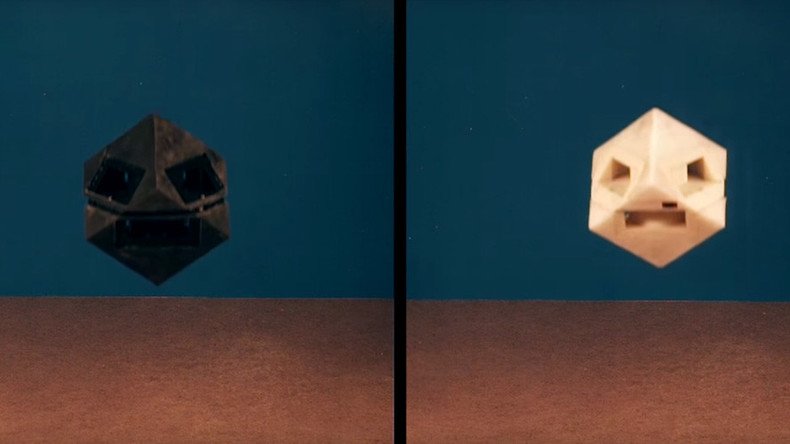Shock absorbing ‘programmable skin’ protects drones from hard landings (VIDEO)

Customizable ‘shock absorbent’ skins for robots that could improve the landing of drones and save a dropped phone from cracking is being developed by researchers at Massachusetts Institute of Technology (MIT).
The researchers’ technique combines 3D printed solids with varying degrees of liquids, creating layers with sticky and elastic properties.
Known as ‘programmable viscoelastic material’, it can then be programed and encoded to “exact levels of stiffness”.
The “skin” was used to help jumping robots “stick the landing”, with researchers reporting that machines equipped with the new skin landed four times more accurately.
“By combining multiple materials to achieve properties that are outside the range of the base material, this work pushes the envelope of what’s possible to print,” said Hod Lipson, a professor of engineering at Columbia University, about MIT’s development.
It opens doors for programmable, soft skin material to be applied as a protective covering for drones, phones and even safety equipment.
“Being able to program different regions of an object has important implications for things like helmets,” said lead author MacCurdy in a statement.
“You could have certain parts of made of materials that are comfortable for your head to rest on, and other shock-absorbing materials for the sections that are most likely to be impacted in a collision.”












